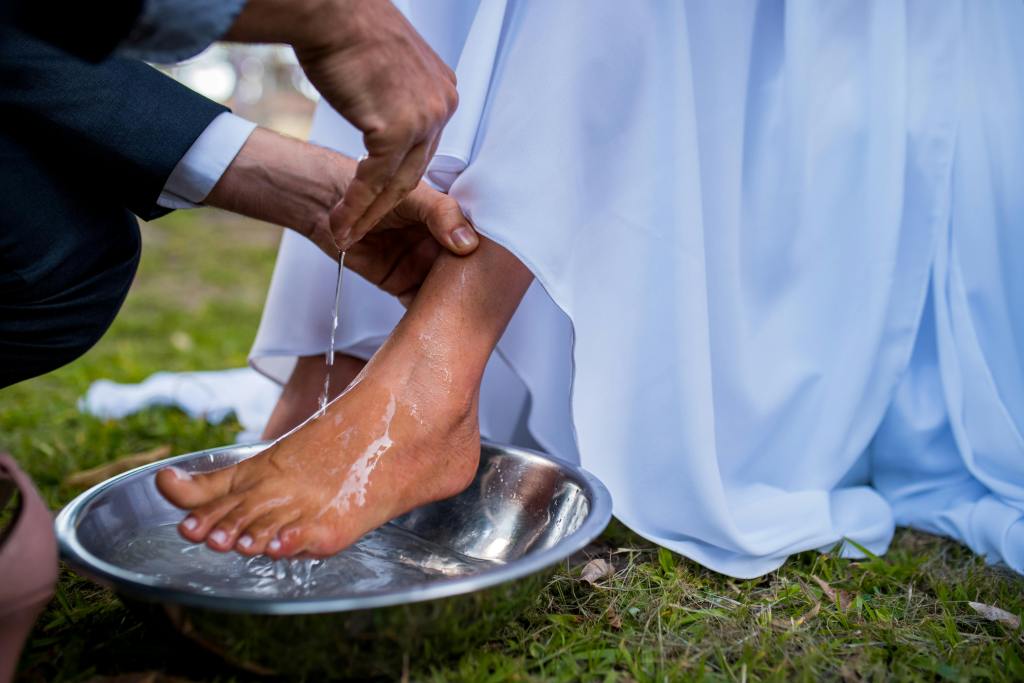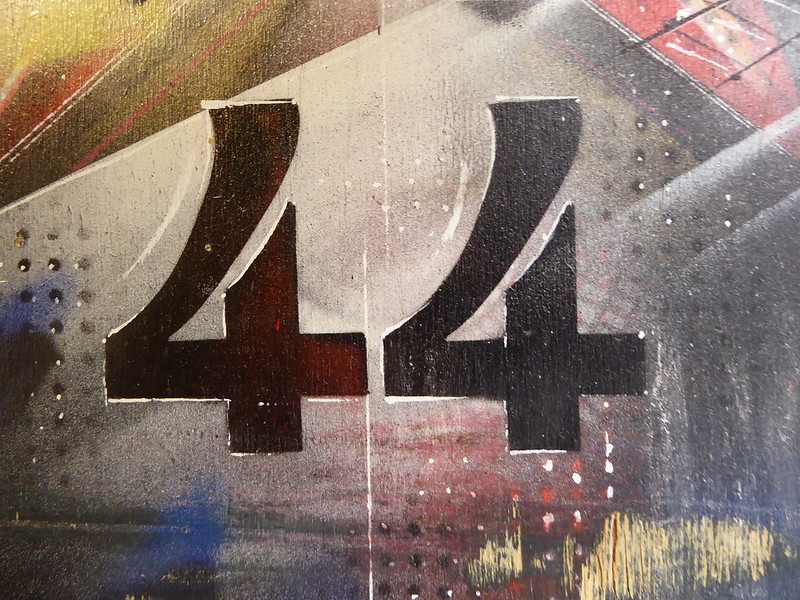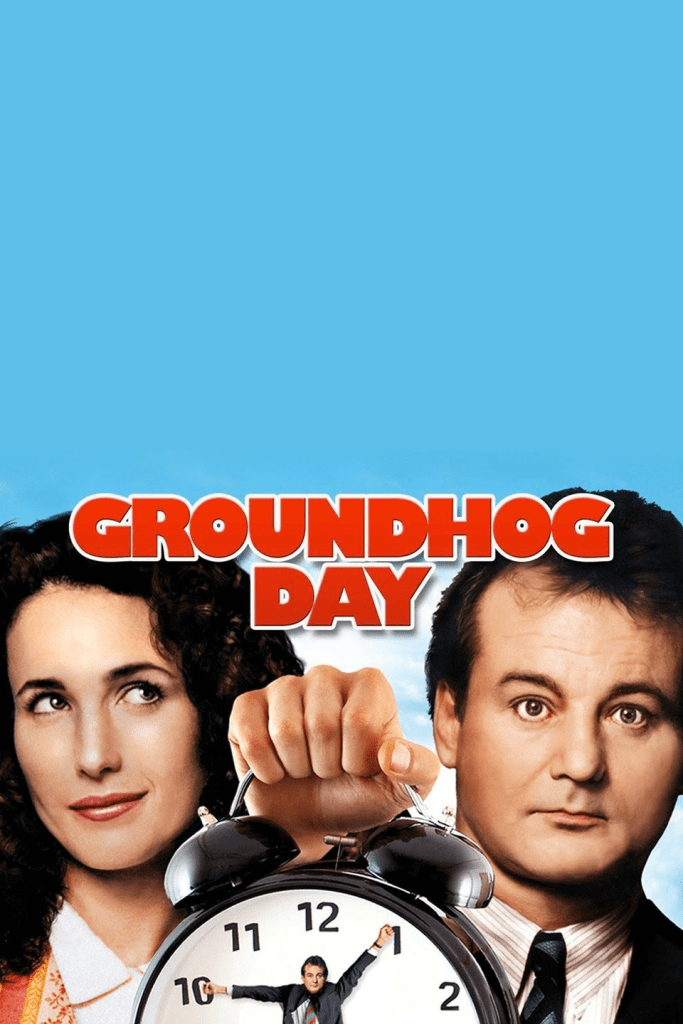
I’ve spent alot of the last 20 years going to therapy. I’ve had a couple of good therapists during that time who have really done some hard work with me and have made all the difference in helping to guide me in becoming who I am today. I’ve tried to be very careful not to put them on pedestals in my mind, but I am grateful for the time and patience and consistency that they have offered me as I healed wounds, began to learn that I have way more self agency than I ever thought, and started to imagine that it might actually be possible for me to become the kind of person I want to be.
One of these therapists really hardly talked at all during our sessions. I drove an hour to her home office every Wednesday for six months when I desperately needed help in moving out of ambivalence to determine if I was going to ask my then-husband for a divorce or suck up my misery and resign to staying in a bad situation for the long haul. I knew I wanted out, but I was desperately afraid. Each week I would walk in and greet her standard poodle Izzy, and then sit on her couch, while she sat patiently in her chair waiting for me to start talking. She never pushed me, never cajoled me into telling her what was on my mind. Instead, she just calmly and empathetically listened while I talked myself into being brave and the readiness to take the big leap off the proverbial cliff that had been calling my name for over ten years. That six months of non-judgmental listening was one of the best gifts I’ve ever received. She could have told me from the start what I should do. She could have offered me all kinds of therapeutic techniques to employ in the situation. But somehow she knew that what I needed most was someone who would just sit, and listen, and hold space for me to cry, and rage, and process all of my feelings and fear out loud. Then one day, after that six months, I woke up and knew exactly what I needed to do, and I did it. I took a running leap and launched off the biggest, scariest cliff of my life, knowing that I would be OK.
I can’t stop thinking about Mary Oliver’s poem, The Journey, as I write this, especially the last part of the poem. That therapist allowed me the time and space to really start hearing MY voice amidst all the voices around me, real and hypothetical, with their endless commentary and judgment about my life.
…and there was a new voice
which you slowly
recognized as your own,
that kept you company
as you strode deeper and deeper
into the world,
determined to do
the only thing you could do—
determined to save
the only life you could save.
Owning All Our “Stuff”
The other really impactful therapist in my life…she’s done alot of listening, but she has pushed me so hard over the last five years. I can’t fake it with her, can’t wiggle out of reach of her concentrated stares that forewarn me she’s about to confront me on some lie I’ve been telling myself. She’s the kind of therapist that is immensely kind and empathetic, but she also knows when to tell me to cut the crap and stop faffing around. When I slander myself or make some self-deprecating statement, she forces me to rephrase what I intended to say before she will allow the conversation to move forward. She is also so matter of fact, and has mostly never gotten perturbed by whatever I’ve thrown at her. ‘You’re really angry now, Julie,” she’d say. “But at some point you’re not going to be angry anymore.” Or, “Fuck may be your favorite word to describe everything right now, Julie, but at some point you won’t need it anymore.” This particular therapist refuses to let me cop out and defer to others for direction on how my life should go. She has always been insistent that my intuition is spot on and that I don’t need anyone, and certainly not a man or a relationship, to save me, and that everything I will ever need is right inside of me. It took me a couple of years, but I finally started to believe it.
One huge lesson that I’ve been learning, especially over the last five years, is that we all have traumas of varying degrees, and we are all wounded…and while we can’t change the things that happened to us and made us afraid, or feel broken, or ashamed…it is our responsibility to determine how we will respond and heal from those things. Admittedly, this can be a hard realization to swallow. It is easier, especially early on, to want to point back to our deep hurts and the people that hurt us, and cast the blame onto them. And often, we want them to have to pay the price for what they did to us, or to come to us and apologize….or at least give us explanations for why they did what they did. Or, sometimes, we just take on the guilt and blame of all of our traumas, and cling, even unconsciously, to the belief that we deserved what was done to us because we are inherently unworthy or unlovable or “messed up”.
It is much easier for us to remain victims regarding our traumas and shame. I mean, if we’re honest about it, there are some real payoffs to allowing ourselves to remain in that state. If we work it right, it can grant us alot of attention from other people, it allows us to control others’ actions around us so they don’t make us uncomfortable or “trigger” us, it allows us to not have to take responsibility for our lives and choices, and it enables us to maintain the status quo, shifting blame to others for us not creating the lives that we want.
What I just said above can come across really harsh, I know it. I used to get so irritated when I would hear things like this.
“So, we’re just letting people who hurt us off the hook? Why do I have to be responsible for fixing things that others broke in me? Why are you putting the burden on me…don’t you know what they did to me?” This is where pain and suffering need to be differentiated. When “those” people hurt us, they caused us pain. For sure. It was real, and terrible, and unjustified, and we didn’t deserve it. But when we carry what happened to us in the past into our present, WE are perpetuating that pain as unnecessary suffering. As harsh and unfair as it sounds and feels, we are causing our own continued suffering when we remain identified with the past.
Even while I’m writing this I’m bristling up a bit. It still bothers me a little, even though I’ve become pretty convinced it is true. But I do know this: I am no longer OK with events that happened decades ago, or people that are long dead, or even hurtful people that are in the periphery of my life, to control my happiness, my sense of self worth, or have any ultimate say in my journey to becoming the person I’m aiming to be. It’s a matter of anger and pain transformation. We have to look deeply at the pain that we experienced, and deeply feel the sadness and grief and anger, and allow these energies to be transformed within us so that they no longer perpetuate suffering, but rather, motivate us to action that is directed in our favor and towards our own personal good.
Letting Go of Blame
This is a hard one, for sure. Most of us, I think, are hurt the worst in our childhoods. Those wounds, whether intended by others or completely accidental, can help shape our personalities, influence whether we learn to fight, flee, freeze, or fawn, and can paralyze our ability to trust ourselves and believe that we have voices that deserve to be heard. Conversely, those wounds can cause us to lash out at others, or condescend, or learn to blatantly disregard the rights of others as we strive to gain some sense of security in our lives.
There are a billion videos and books out these days on narcissists, mother wounds, father wounds, etc. I mostly think this is a good thing: the presence of these kinds of materials shows that we as a society are becoming more aware of how we are shaped in our childhood by various people and circumstances, and how the patterns of codependency and toxic relationships can pull us in and play out. True, some of these topics have become trendy and overused, and NOT EVERYONE is a narcissist. To riff off something similar that a friend of mine once said, I know’s there’s not a narcissist behind every rock, but I’d like to be able recognize when a real narcissist is behind the rock in front of me.
I think it’s really good that it is no longer so taboo or uncomfortable for people to talk about going to therapy, and that it is more openly encouraged these days. That we are allowed to look back on our lives and name the things and people that hurt us, acknowledging that many of those events were not OK. Even more so, I’m very glad that we are speaking the message more and more openly that we are not required to do life or stay in relationship with people that have hurt or continue to hurt us. It is OK to divorce family members, or to even set up very firm, clear boundaries for interactions. It is OK to have varying levels of intimacy with different people in your life; it doesn’t make you dishonest if you aren’t as transparent with one person as you are another. I’m so grateful for all the great books on boundaries that have been published over the last couple of decades, especially for those of us who grew up suffering, without any sense of space, personal or otherwise, that we could say belonged solely to us.
At the same time, I have heard alot of people gripe about how we need to stop blaming our parents for everything. “That’s just the way it was in the 80s.” Or, “My parents whipped my ass and I turned out just fine.” (I internally take issue with this statement every time I hear someone say it.). Or, “These younger generations are just lazy, don’t appreciate the value of hard work, are too soft, (insert a billion similar phrases here).” Most of the time these statements annoy me, and I want to slip them my therapist’s number and tell them it might help to talk to someone. But I also recognize that at a certain level, they are right. Not about this generation being lazy or that we all deserved a good spanking. At some point in each of our journeys, we have to let go of the blame game and stop linking all of our pain and our hurts to “that person” or “that one event”. Endless blaming and shifting of responsibility to others is never going to get us to where we want to go, long term. Early on, when we start down our paths to healing, it is good and necessary to recognize who and what hurt us and stop making excuses for them. Alot of those things absolutely need to be called out. But then, as we start to grow and expand and begin to take our rightful places in this world, the blame game has to stop or we’ll remain stuck – Stuck at a life level I think may actually be worse than the place we started from.
A medical intuitive and spiritual teacher that I really like, Caroline Myss, often tells a story about how at some point, it is crucial that we let go of the blame game and dis-identify with our trauma. She tells of a Native American ritual that helps people get over their traumas and soul wounds. I can’t remember all the details from her telling of it, but basically the idea is that the community would listen to the telling of one’s trauma three times, but after that, they would turn their back on the remembering and telling of the trauma. Not because they didn’t care about the person or recognize the significance of that deeply painful experience, but because they knew that continually reliving and affirming the existence of the experience did the individual no good. Ultimately, it would keep the person stuck.
We are not meant to stay wounded. We are supposed to move through our tragedies and challenges and to help each other move through the many painful episodes of our lives. By remaining stuck in the power of our wounds, we block our own transformation. We overlook the greater gifts inherent in our wounds – the strength to overcome them and the lessons that we are meant to receive through them. Wounds are the means through which we enter the hearts of other people. They are meant to teach us to become compassionate and wise.
– Caroline Myss
Something that sometimes annoys me is that once you get to a certain point in your healing journey, and try to employ the blame game or verbally recall your traumas out of a conscious or unconscious need for attention or affirmation or whatever…it will fall flat. I’ve noticed that every once in a while, especially when I’m tired or just really needing affection or intimacy from loved ones, instead of just openly asking for what I want or need, I’ll conjure up something that is related to a past trauma of mine, and it involves me somehow recounting that trauma and how much my current feelings or the situation is reminiscent of it. Almost every time I do this, I get an ick feeling mid way through my “trauma telling” that advises me to stop going down that path….to stop talking… that it’s not serving me. Telling me that if I need connection I just need to ask for it. But more often than not, I’ll push through, tell me story, and sure enough, the outcome I was “hoping” for fell flat or I came away feeling manipulative and gross. Not because I was telling a lie or was consciously trying to manipulate someone into giving me what I needed, but because I recognized that I’m past those traumas…they’re old stories that no longer define me, and when I try to re-identify with them, it makes me feel inauthentic and icky. As it should.
At some point, we just need to drop our stories.
On Forgiveness, Briefly
I was talking with my therapist the other day about an unexpected existential crisis that arose in me about COVID vaccines and big pharma, of all things. The actual details of why Pfizer and Ventavia were causing me angst really don’t matter, but what came out of this conversation through some verbal processing felt really helpful to me. My therapist and I were honing in on how the belief about the situation was making me feel, and I was able to identify multiple instances from my childhood in which I felt the same way.
As my therapist and I worked through my uncomfortable feelings around my vaccine crisis, and how they were bringing up similar feelings that I’ve felt before, I felt I needed to qualify to her that while I was bringing up a story from the past, I was not trying to throw anyone under the bus. I was not trying to launch into repeated angry tirades about how someone hurt me in the past and made me feel exactly how I felt now. Rather, I just wanted to express that I could perceive my thoughts and feelings traveling down well know roads in my mind. These roads were first laid down by people and hurtful events, but over time, I allowed them to become deep, worn, well traveled grooves that would come to direct so many of my behaviors and responses to different life events.
As I began verbally processing about all of this, my therapist threw in a zinger as she always does. To paraphrase what she said to me: people and events hurt us one time, or in isolated events, but then we perpetuate that hurt long term in ourselves.
Dude, that is a painful thing to think about, to write down. But I think it is also wildly liberating. Because…it implies we are not doomed to live forever in the shadows of what was done to us. We may not have the choice about pain that is caused us, but we have agency over how long we want to suffer from that pain. That feels like gospel good news to me.
The interesting thing about the conversation was that when I think about those childhood events connected to my current feelings, there was no anger present. No blame. No pointing fingers. It was just a noticing that my anxiety and fear of what my crisis might be saying about me was the same anxiety and fear that I had felt multiple times before. The feelings were yucky, but familiar. The thought patterns surrounding them were well tracked in my mind and I knew every bump and curve along their paths. I used to be angry when I made connections between these feelings and old events. I knew exactly which adults in my life had caused those feelings in me when I was a child and exactly how they wronged me. And for a long, long time, I would allow that rage and resentment to rise up in me when I thought about the specific ways they had hurt me. But at some point, with my therapist’s help and alot of internal shadow work, I realized the anger was no longer serving me and it was time to transform it and forgive “those people”. Forgiveness and what I think it means are a whole other conversation, too long for today. But ultimately, I realized I was tiring of carrying around pointless anger that did nothing but keep me stuck and miserable about the apologies I was never going to get. In the meantime, here is another great offering from Caroline Myss, to chew on for a minute:
Ultimately, forgiveness is a battle between the righteousness of your ego and your capacity to transcend whatever situation you’ve experienced that has shattered the following myths that maintain that suffering is deserving of recognition, reward, or righteous vengeance:
- God is on your side and only your side.
- Justice should be logical and reasonable and always serve your side of the story.
- God follows the code of human law – if you do only good things, bad things will never happen to you, and, of course, you never do bad things.
- You are entitled to have all things work out in your favor.
Leveling the Ditches
We learn protective mechanisms and ways of being to survive hard things in childhood. Our ability to creatively defend ourselves in different ways speaks to our resiliency and drive to continue living. Many of these behaviors and responses to traumas and childhood are cemented into our personalities and foundational patterns and ways of being as we grow older. Our beliefs and involuntary reactions form what I like to think of as ruts or ditches in our minds…basically well used cognitive and emotional pathways that are carved into us and serve us, at least for a time, until they don’t. Science tells us that neurons that fire together, wire together. Our brains try to be efficient and from what I’ve read, especially in relation to addiction science, create neural pathways that strengthen the more that neurons in those pathways fire.
Those “ditches” in our minds are really helpful because they help with memory, and habit, and doing similar behaviors without having to relearn them over and over or to require constant thinking about what we’re doing all the time. However, they can become maladaptive, especially when we are adults and are interacting with life using the same thinking and behaviors that we utilized when we were younger. When we are children, the ditches are safe places to hide in, low places that can sometimes shelter us from chaos or mayhem around us. They can protect us from absolutely being broken in spirit by hurtful people or unthinkable events. But when we’re older, the ditches can become deep ravines we repeatedly fall into that hinder our forward progress. They may still be places we can hide in for a time, but they may also keep us hidden from good things that want to come into our lives.
Here’s a quick example of a protective “ditch” from my childhood. When I was young, probably about 9 or 10, I began experiencing really strong “sleep attacks” that seemed to hit me out of nowhere. I wouldn’t automatically fall asleep, but I would suddenly feel exhausted and overwhelmingly sleepy and it would be all I could do to stay awake. Whenever I could, I would succumb gratefully to these attacks, and sleep deeply. I experienced these sleep attacks all the way up into my early 30s. Their presence, in addition to frequent migraines and generally poor sleep at night, drove me to get a sleep study done. Initially I was diagnosed with non-cataplexic narcolepsy, with the diagnosis eventually being changed by a sleep neurologist to “an idiopathic sleep disorder.” Basically, I had an abnormal sleep study and was not getting restorative sleep. This was likely contributing to my sleep attacks during the day, but the cause of my abnormal study was unclear.
Long story short…not long after I had this sleep study done, I really got serious about personal healing and self development. I went through a major faith deconstruction and then gradually started reconstructing it, I stopped believing that I had multiple mental health disorders as numerous healthcare providers had convinced me over the previous decade, I found the therapist who really knew how to listen, and I started questioning my entire belief system about…well…everything. And wouldn’t you know….the constant migraines and sleep attacks just completely went away on their own. As I look back on the sleep attacks, I can now clearly see that they were a defense mechanism for me when I was a child. When I was confronted with emotions or events that were too big and overwhelming for me to handle, my body would put me to sleep. Maybe a little like dissociation. And when I would wake up, I would feel like I could move on from whatever had happened. Once I really started doing the deep introspective shadow work into myself, and started learning how to transform my pain and fears, I no longer needed to be “rescued” by sleep. That ditch was no longer needed, no longer serving me; it was eventually abandoned and filled in as my mind found new, healthier paths for which to navigate life.
My Ultimate Point in this Post?
At some point, it is time for us to start leveling the ditches. Eventually, we need to start filling them up so they can no longer serve as our familiar, comfortable, “automatic” pathways. It is time to start carving out new neural pathways and thought patterns in our brains and minds that actually serve us now that we are grownups. This isn’t an easy task, and it requires us to take on radical responsibility for ourselves and our lives, but as far as I can tell, it is absolutely worth it.
You know that saying attributed to Paul the Apostle in the New Testament? “When I was a child, I spoke and thought and reasoned as a child. But when I grew up, I put away childish things.” 1 Corinthians 13:11, NLT. When I was younger, I would read this verse and feel like Paul was dissing childhood a bit. But no…he was saying that the way we thought and approached life as a child served us then, but now it’s time to rework all of that and use the reasoning abilities we have as adults to approach the lives we are living now.
I suspect that over time many of these feeling and memory ditches in my mind may become more and more shallow, until eventually, I no longer associate them with “events” or “people”. At least, I hope. They will just be small dips in the road that I encounter every so often, where I recognize a “feeling” that I’ve had before. But instead of falling into a deep ditch where I get stuck in old stories and what people did to me, I can just feel the feeling, let it pass, and keep moving on.
Final Thoughts
Turns out, I was not ever really upset about Pfizer and Ventavia. Not surprising. It was the “thing behind the thing” that I was upset by. Thoughts about a situation with COVID and vaccines dredged up similar feelings that I knew very well, feelings that were ultimately tied to core wounds and beliefs about myself. As I talked to my therapist about all this, I was able to move through those feelings pretty quickly and gain resolution so much faster than I ever used to be able to. What really excited me about the process, though, and showed me I’m actually making some good progress? I didn’t have to go back and get angry at anyone or anything that helped contribute to my core wounds and fears, and I was able to recognize that I didn’t even have to be angry at Pfizer and Ventavia even though it was news about them that appeared to undo me for a few hours.
All I had to do was sit quietly, talk through my feelings and find their origin, question whether my beliefs about them were true or not, decide that what I was believing about myself in the moment was not true, and then move forward, choosing to believe better about myself. In the matter of the one half hour long chat with my therapist, that particular fear ditch got filled in and leveled out just a little bit more.
















